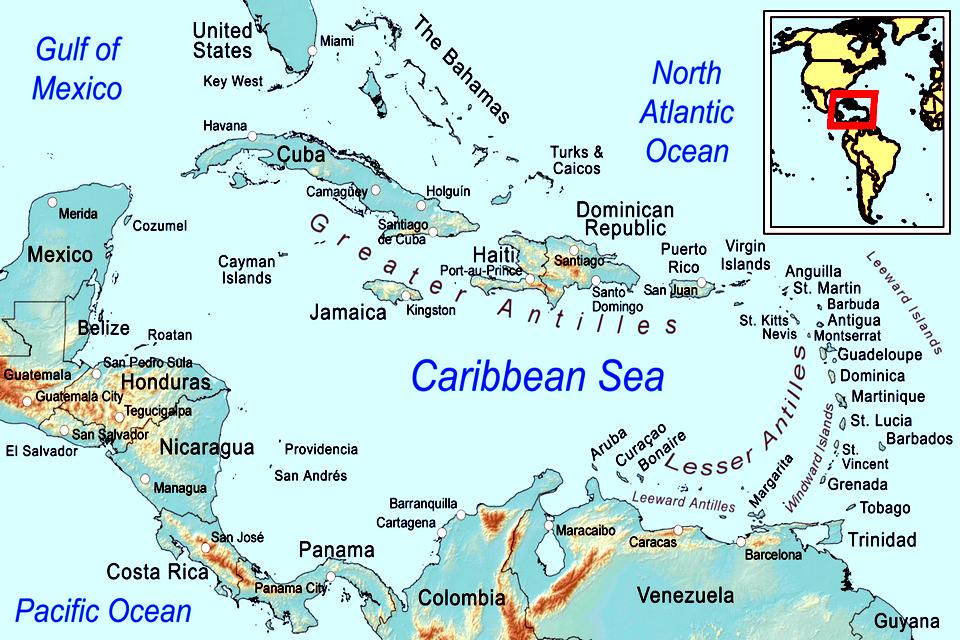Last Updated on April 1, 2024 by Ranking
Drawing on resource dependence theory, we argue for the influence of business groups (BGs) on the board composition of offshore financial multinational enterprises (FMNEs). Using a unique sample of 171 Caribbean FMNEs in an interisland setting, we find that BGs exercise control in component companies to indicate the importance of internal financing and intermediation. This control leads to a higher percentage of lawyers employed on the management boards of BG companies.
This study contributes to the literature on institutions by considering the characteristics of overseas financial centers. The Caribbean region is unique in that it is completely devoid of developed economies. The distinction between “high” and “low” institutional quality reflects the gap between foreign financial jurisdictions and developing countries.
This study also contributes to the literature on measuring the application of corporate governance at the firm level. The starting point of the study is to define BG and FMNE, taking into account their central place in the subsequent analysis. The Caribbean region is uniquely divided between territories with emerging economies and larger sizes and populations.
The Caribbean region is uniquely divided between territories with emerging economies, characterized by larger sizes and populations, and offshore financial centers. Caribbean developing economies, like economies around the world, have inherited a formal institutional legacy based on earlier colonial legacies. After transplantation, this system largely retained its archaic character due to the constraints of new national policies.
The Caribbean region is characterized by a very high density of extremely small territories. Their extreme smallness results in prohibitively high costs of providing public goods and services. Small territories cause their economies and political systems to be overturned by a handful of large families. These families typically behave colludingly and have significant socio-emotional connections to local islands.
Offshore jurisdictions evolved from the legal framework that underpinned the provision of “flags of convenience” associated with the international shipping industry in the 1960s and 1970s. The offshore finance industry, like the jurisdictions within it, is highly innovative and almost entirely based on legal innovations governing transactions.
The study shows that lawyers play a key role in strengthening the competitive advantage associated with intra-group resource brokering. Having lawyers on the board provides the board with a valuable source of human and social capital from its multi-dimensional roles. Lawyers’ dual role as gatekeeper and transaction engineer also helps reduce tensions between minority resource providers.
Having lawyers on the board provides the board with a valuable source of human and social capital. It was argued that lawyers serving as executive directors play important roles in supporting the company as well as gatekeeping and deal engineering. This study concludes that lawyers play a key role in enhancing the competitive advantage associated with intragroup resource brokering.
A positive association in offshore economies. between the proportion of representation of the BG management board and the proportion. the number of non-executive lawyers on the board is positively moderated by adoption. management of shareholder rights at the company level. At lower levels of shareholder rights adoption, there is no need to have lawyers on the board because it is. less legitimacy is expected from international capital markets.
This study concludes that the above arguments highlight the urgent need for companies to employ more lawyers as non-executive directors. Lawyers are also necessary as transaction engineers, where their role is more similar to that of auditors and accountants (Morse et al., 2016). Their legal skills and experience are essential in the construction and design of contracts (Agrawal and Knoeber, 2001).
This study concludes that adopting corporate governance based on shareholder value undermines the benefits that can be attributed to the opaque networks that dominate an industry.
The offshore FMNE industry originating in the Caribbean has led to overseas expansion into other offshore jurisdictions such as Gibraltar, Malta, Dubai and Singapore.
The use of exempt companies or IBCs means that income generated outside the island’s jurisdiction is exempt from tax.
The dataset is unique and was constructed in two stages. The first was to prepare an exhaustive list of companies listed on the common stock exchange. For each Caribbean stock exchange, lists of listed companies have been compiled since 2000 or its inception, whichever was earlier. The second stage of creating the dataset involved obtaining annual reports of individual listed companies from across the Caribbean region.
The study has one explanatory variable: the percentage of BG representatives on the management board. 98 of them belonged to BG families and another 36 became FMNEs. The degree of numerical dominance is evident in the proliferation of popular surnames permeating all areas of government, business and the civil service. It provides a means of capturing the extent to which local government units participate in island economies.
Identification of BG representatives was done manually, based on a combination of in-depth analysis of director biographies included in annual reports and a non-exhaustive list of extensive local sources. Focusing the study on their representation on the management boards of the companies that comprise them allows us to capture the degree to which managing banks exercise control over the companies in which they participate.
We adopt the shareholder rights sub-index of the OECD Principles of Good Governance (2004). They are taken from a total of 33 individual governance elements identified annually for each company. Five sets of control variables were adopted. Institutional controls include a binary effect taking the value one if the island territory maintains European colonial status and zero otherwise.
Five sets of control variables were adopted. Institutional controls include a binary effect taking the value one if the island territory maintains European colonial status and zero otherwise. Robust controls are based on previous empirical management research. Capital structure controls capture the impact of capital and financial structure using two variables. The third check is on director ownership, with these holdings reported in a dedicated director ownership subsection adjacent to their biographies.
Capital structure controls capture the impact of capital and financial structure using two variables. Ownership control takes into account the concentrated cash flows of venture capital (VC) and then corporate blockholders and company directors. The models take into account the structure of our panel, determined by significant variation between companies but little in terms of time series dimensions.
The boards of Caribbean listed companies consist of an average of nine members, with a standard deviation of almost three members. The boards are ethnically homogeneous and their members come mainly from one of the main ethnic groups in the region. The average annual revenue of the companies is USD 112.5 million, with quite a large dispersion of just over USD 200 million. The company’s results are low and amount to -8.01%, which reflects the collapse of industries created as a result of natural monopolies.
The study first considered moderation by the focal firm’s adoption of shareholder value corporate governance and then secondarily considered the binary condition of whether the firm is part of a foreign FMNE.
The study shows that executive directors who are lawyers play a more important gatekeeper role. This is somewhat lacking in their non-executive counterparts, who are recruited primarily to co-opt foreign bureaucratic tax-related legislative contingencies.
The study undertook a unique exploration of the factors determining board composition and involvement of bank investors in the FMNE offshore financing industry.
The findings have important implications. The resource dependence theoretical approach used in this study views corporate boards as meeting the need to maintain socioemotional wealth.
Transition of non-executive lawyers from gatekeeper to transaction engineer at FMNE. The results reveal an as-yet-unexplored niche industry and a source of external FMNE activity that focuses on secrecy. The study sheds light on a multi-billion dollar niche industry of offshore financial FM companies that export unique offshore skills.
Source: International Business Review 32 (2023)




